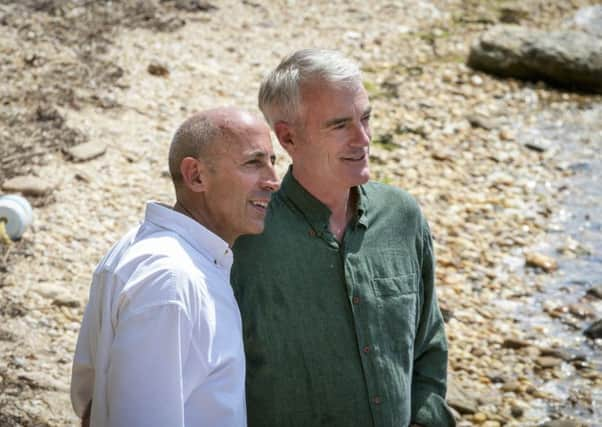Susan Lowes: LGBT patients need end-of-life equality


Lesbian, gay, bisexual and transgender (LGBT) people are likely to experience a number of barriers to accessing the high quality care they need when living with a terminal illness and at the end of life. It seems odd for me to be writing this in our society in the 21st century, when recently Scotland has again been rated the best country in Europe for LGBT equality in the Rainbow Index. However this was the main finding from a recent report published by Marie Curie called Hiding Who I Am: Exposing the reality of end of life care for LGBT people.
Research from the University of Nottingham and King’s College London reveals that nearly three-quarters (74%) of LGBT people are not confident that health and social care services provide sensitive end of life care for their needs. As a result, they often delay accessing the care they need and are more likely to experience unmanaged symptoms and pain at the end of their lives.
Advertisement
Hide AdAdvertisement
Hide AdWhile there are examples of excellent care for LGBT people at the end of life across the UK, interviews undertaken for the report reveal that sadly discrimination is still prevalent. One person who was approaching the end of her life said her doctor refused to see her without a chaperone because she was a lesbian.
We know that nearly one in four people miss out on palliative care, including many LGBT people, which is why the commitment from the Scottish Government, reaffirmed in the SNP’s recent manifesto, that everyone who needs palliative care has access to it by 2021 is incredibly important. Everyone in the hospice and palliative care sector, including Marie Curie, has a lot of work to do to ensure that LGBT people access palliative care services and have the best possible experience while doing so.
We can and must do more to work together to help promote the importance of LGBT-appropriate services at end of life, as well as the need for anticipatory care planning to ensure that people have the best chance possible of getting the care they want in the way they want.
One way we can do this is by offering training to enable health and social care professionals to have sensitive and timely conversations with LGBT people about their sexuality and/or gender identity and their plans for end of life. We also need to address preconceptions that someone is heterosexual.
We know that health and social care professionals can assume this and many older LGBT people are afraid to challenge it. The result is partners and their choice of family might not be involved in their care, as much as they should or would like to be. Some LGBT people are deeply worried that the wishes of their birth families will be given higher priority than their partners and families of choice. Next of kin rules are still too ambiguous.
Many LGBT people feel that hospice and palliative care services are not ‘for them’, because they don’t see themselves reflected in the imagery used by the hospice and palliative care sector. We need to represent everyone in our society and where appropriate, undertake research on their needs and collect data on the sexual orientation and gender identity of patients to understand the care needs of all the people we care for.
The new health and social care partnerships are focused on person- centred care and what matters to people. They must meet the needs of everyone in their communities and carry out equality impact assessments on their strategic plans. The design and commissioning of all palliative and end of life care services locally must be truly reflective.
We are all committed to the Scottish Government’s target that everyone who needs palliative care has access to it by 2021. To achieve this we must work to ensure that all groups of people get access to that care and that it reflects their needs.
• Susan Lowes is Policy and Public Affairs Manager, Scotland at Marie Curie, www.mariecurie.org.uk/change